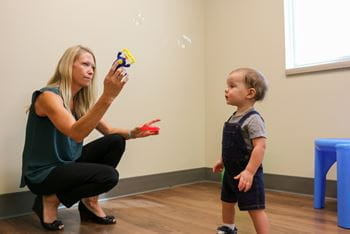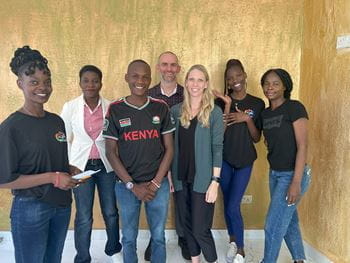 The Health Equity through Autism Research Translation (HEART) Lab focuses on reducing autism and neurodevelopmental health disparities through the development and evaluation of innovative models of care both within the US and globally. Our team of scientists, health care clinicians, caregivers of children with neurodevelopmental disabilities, autistic advocates and learners are passionate about applying cutting-edge research methods to solve real-world health problems and improve the lives of children, their families and the health care clinicians and systems that care for them. The community — whether rural Indiana or resource-constrained regions of Africa — is our living laboratory and the principles of inclusion, respect, mutual learning and benefit, and equitable partnership guide our scientific collaborations. At the HEART Lab, we believe that our science and impact is strengthened when we work together. Our areas of research focus include:
The Health Equity through Autism Research Translation (HEART) Lab focuses on reducing autism and neurodevelopmental health disparities through the development and evaluation of innovative models of care both within the US and globally. Our team of scientists, health care clinicians, caregivers of children with neurodevelopmental disabilities, autistic advocates and learners are passionate about applying cutting-edge research methods to solve real-world health problems and improve the lives of children, their families and the health care clinicians and systems that care for them. The community — whether rural Indiana or resource-constrained regions of Africa — is our living laboratory and the principles of inclusion, respect, mutual learning and benefit, and equitable partnership guide our scientific collaborations. At the HEART Lab, we believe that our science and impact is strengthened when we work together. Our areas of research focus include:
- Understanding disparities in autism diagnosis to drive new methods for improving health care access and equity.
- Building capacity of primary care to improve equitable access to autism evaluation at the earliest actionable point.
- Using participatory methods to optimize primary care training in early autism evaluation.
- Cultural adaptation of autism evaluation tools for use in resource-constrained local and global communities.
- Development of autism evaluation models for children from minoritized racial, ethnic and language backgrounds and global settings.
- Integration of clinical and biobehavioral approaches to advance early autism diagnosis.
For more information about the HEART Lab, contact us at iusomasd@iu.edu.


/screenshot-2025-03-31-140632.png?rev=614c5aabbfae4ebd9ef2c03b73f3fd10&hash=FAACA22AB59F83CD015CE72FFB38407F)